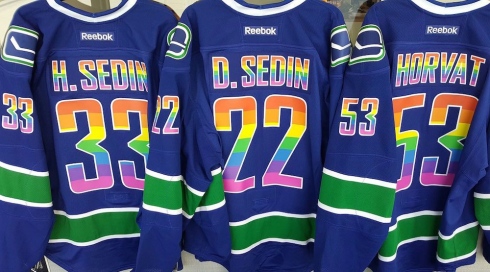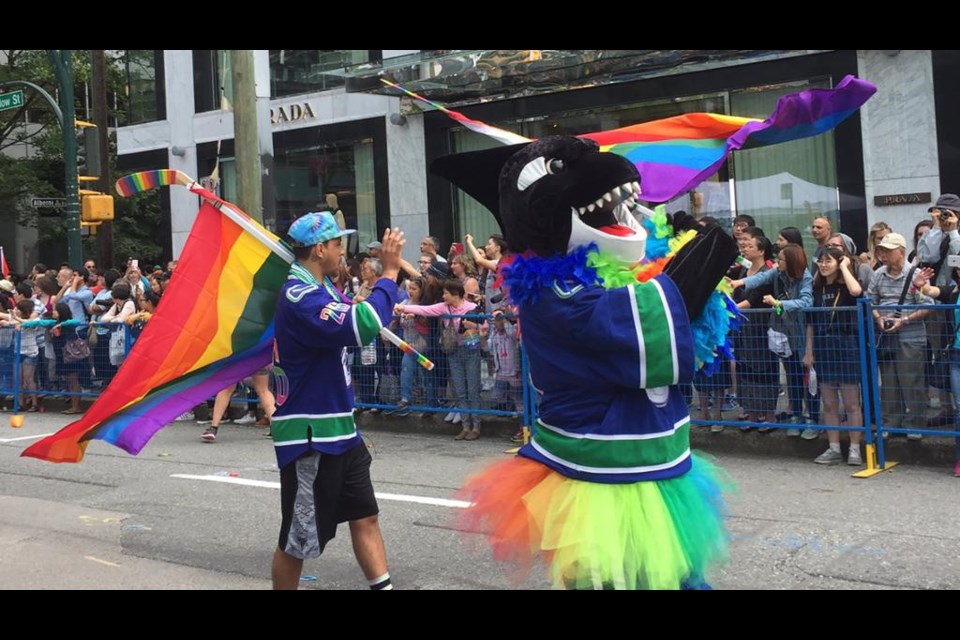The Â鶹´«Ã½Ó³»Canucks have been vocal supporters of the You Can Play Project since it began in 2012, supporting the cause of inclusion in sports. On Sunday, : Erik Gudbranson and Troy Stecher.
The two defencemen will be joined by Canucks mascot Fin, as well as at least 30 Canucks staff, to support and celebrate the LGBTQ+ community in Vancouver. Gudbranson looks forward to participating in his first Pride Parade.
"The hockey community is all about being inclusive," . "Everybody should feel comfortable in their own skin. Having sport get in the way of someone based on sexual orientation or gender or race is absolutely wrong. Everyone is very open-minded in the hockey community and it's good to be out there showing that and supporting that."
The Canucks have previously been represented in the parade by Manny Malhotra, Emerson Etem, and Jason Garrison. In addition, for warm-up earlier this year for You Can Play Night.

Ìý
Other Â鶹´«Ã½Ó³»sports teams will be marching as well: theÌý.
Despite the NHL’s partnership with the You Can Play Project and public statements like the Canucks marching in the Pride Parad, there has yet to be an openly gay player in the NHL. The league as a whole still has further steps to take. , and that may be reflective of the attitudes of some players in the dressing room.
There is also a strong team-first attitude in hockey that may dissuade players from coming out for fear of being seen as a distraction or of causing a rift in the dressing room because of the homophobic attitudes of even a minority of the team. Players get criticized for anything that seems to celebrate the individual instead of the team, from overly-enthusiastic goal celebrations to social media accounts. There's a strong argument to be made that the NHL isn't as inclusive as Gudbranson suggests.
That said, it seems like only a matter of time. Patrick Burke, the co-founder of You Can Play, has confirmed in the past that and continued shows of support like the Canucks presence at the Pride Parade will hopefully help them feel love and accepted.
What will make the biggest difference, however, is how players, coaches, and staff speak and behave behind closed doors. Gudbranson suggests that he's seen a change in attitude over the last several years: "Words that were once used have completely vanished; there is an understanding as to how hurtful they can be. I have seen the growth of this community and the importance and how the general view towards it has changed."



